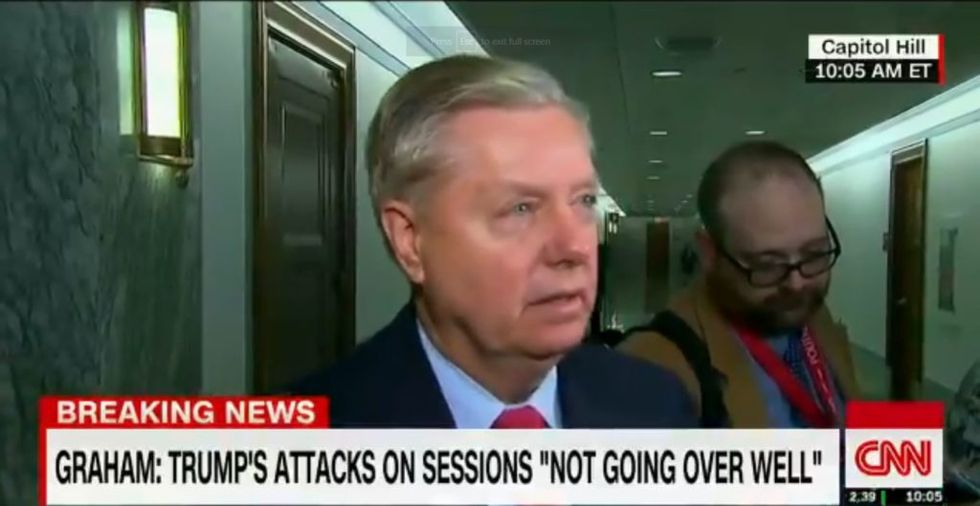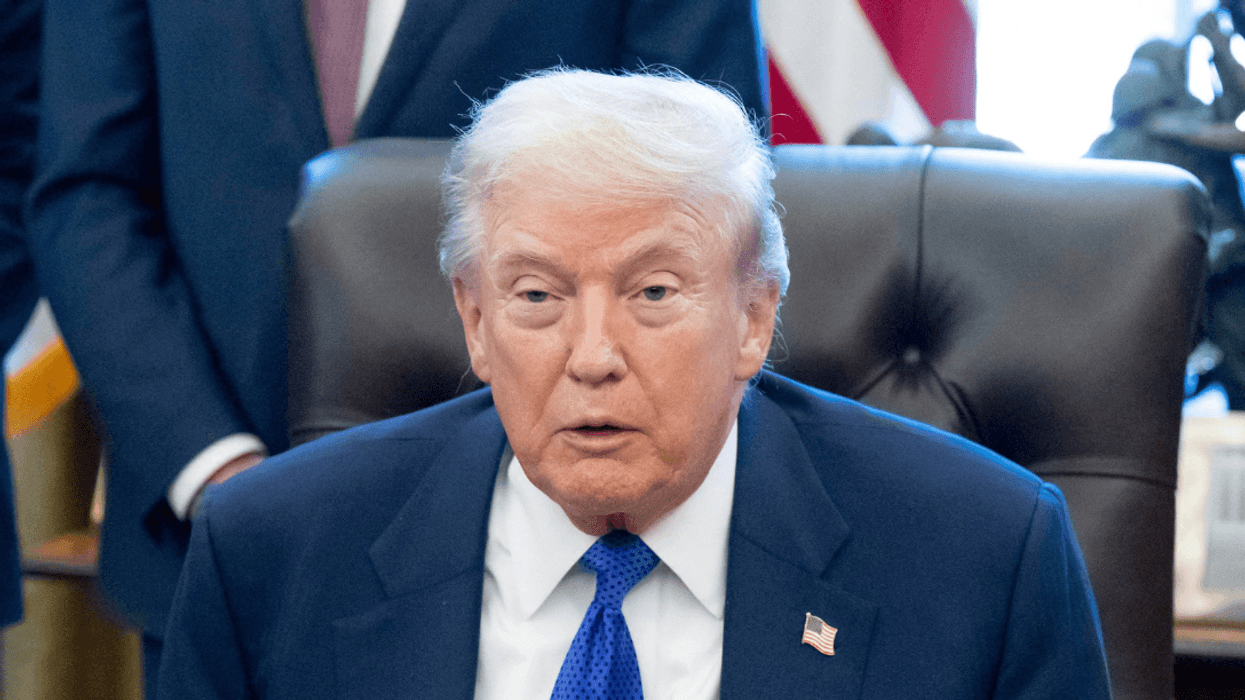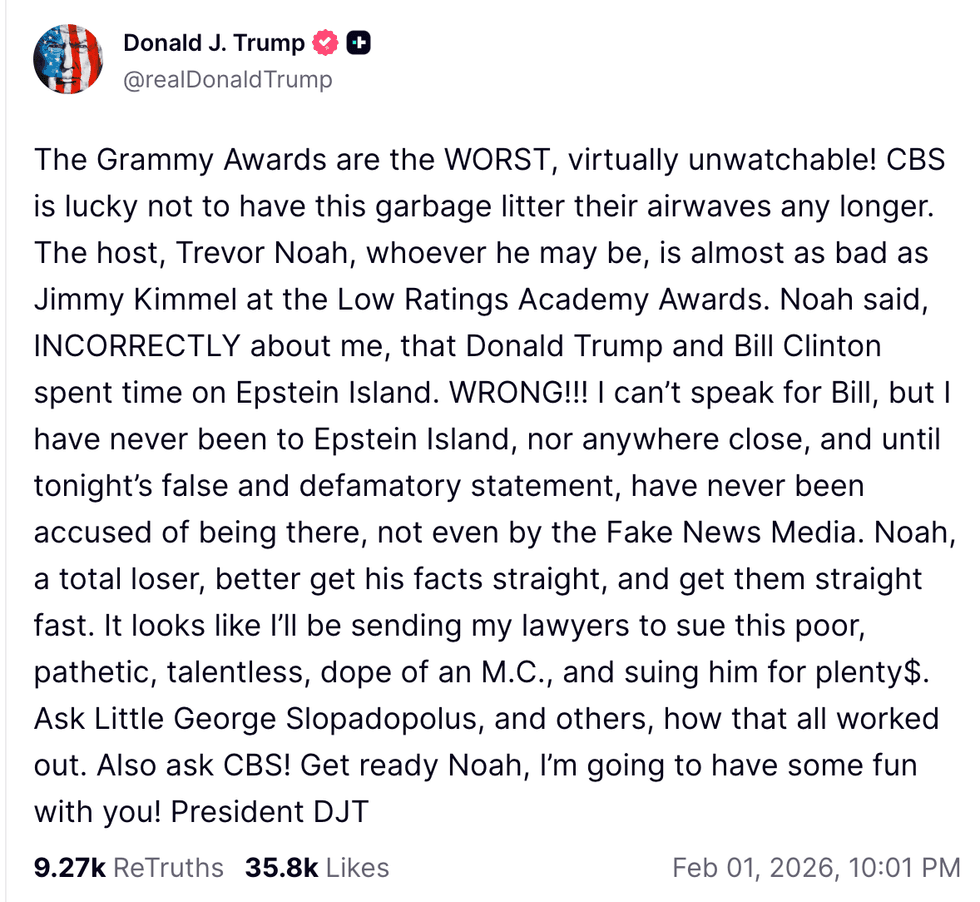Senator Lindsey Graham (R-SC) is one of President Donald Trump's most tenacious allies. He starkly defended the president's Supreme Court nominee (now Justice) Brett Kavanaugh during Kavanaugh's nomination hearings, calling them a "sham" in a nearly five minute diatribe. Most recently, he supported the President's move of eliminating birth right citizenship, calling it an "absurd policy," and vowing to introduce legislation against it.
But it wasn't always this way, and now that's coming back to haunt Graham.
This week, as Attorney General Jeff Sessions resigned at President Trump's request, video of Graham discussing the then-hypothetical situation of Sessions being fired resurfaced.
In the video, Graham says:
"If Jeff Sessions is fired, there will be holy hell to pay. Any effort to go after Mueller would be the beginning of the end of the Trump presidency."
Twitter's response? Holy hell.
But many think they know the motivation behind Graham's sudden kowtowing to the president, and suddenly this all makes sense.
Donald Trump has lampooned Sessions since the Attorney General recused himself from the Russia investigation led by Special Counsel Robert Mueller. Many have speculated that Graham became pro-Trump in an effort to replace Sessions as Attorney General when Sessions was inevitably booted from the administration.
That's why many seem to believe that Sessions will now begin distancing himself from his previous comments.
Maybe he'd use a similar excuse he employed when answering for his "race-baiting, xenophobic bigot" statement:
"No, I don't think he's a xenophobic, race-baiting, religious bigot — as president."
For his part, Graham has said that he intends to remain in the senate.
But some seem to think that it will hold about as much water as his "holy hell to pay" assertion.
It's quite possible that Sessions's replacement--whomever that may be--would imperil the Mueller investigation because Sessions' hesitation to do so was what soured his relationship with Trump.
And the show continues...














 @obamaatredrobin/X
@obamaatredrobin/X
 @realDonaldTrump/Truth Social
@realDonaldTrump/Truth Social

 @.a.zan/TikTok
@.a.zan/TikTok @.a.zan/TikTok
@.a.zan/TikTok @.a.zan/TikTok
@.a.zan/TikTok @.a.zan/TikTok
@.a.zan/TikTok @.a.zan/TikTok
@.a.zan/TikTok @.a.zan/TikTok
@.a.zan/TikTok @.a.zan/TikTok
@.a.zan/TikTok @.a.zan/TikTok
@.a.zan/TikTok @.a.zan/TikTok
@.a.zan/TikTok @.a.zan/TikTok
@.a.zan/TikTok @.a.zan/TikTok
@.a.zan/TikTok @.a.zan/TikTok
@.a.zan/TikTok @.a.zan/TikTok
@.a.zan/TikTok @.a.zan/TikTok
@.a.zan/TikTok @.a.zan/TikTok
@.a.zan/TikTok